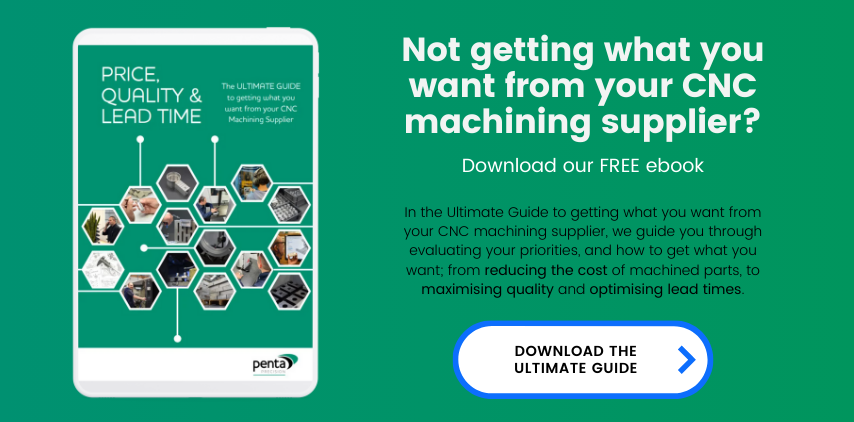PI / Polyimide Plastic Machined Parts
Your guide to PI Plastic Machining
__________
A family of some of the most heat and fire resistant polymers in existence
Ideal material for challenging friction and wear applications
High strength and outstanding wear resistance
Polyimides (PI or often referred to as the brand name Vespel®) are a family of some of the most heat and fire resistant polymers in existence. There can be some challenges when machining so choosing an experienced and skilled CNC machining partner is essential.
This guide will take you through the main attributes, common applications, notes for designers and suitable finishing and treatments, as well as UK stock sizes and property tables. Don't forget to bookmark the page so you can refer back later.
If you are interested in PI machined parts, please scroll to the bottom of the page for more information about our service and to request a quote.
PI Guide: Properties, Applications and Design Considerations
__________
What is PI plastic?
Polyimides (PI or often referred to as the brand name Vespel®) are a family of some of the most heat and fire resistant polymers in existence. Low wear rates combined with the ability to work under unlubricated conditions and high pV-rates makes it the ideal material for challenging friction and wear applications, extending lifetime and reducing maintenance costs.
There are many different grades of PI/Polyimide, all with varying characteristics. A comparison of the technical properties can be found in the tab below.
PI does come with its challenges when it comes to machining. A good machining finish can be achieved by keeping tool cutting edges sharp, particularly for parts requiring tight tolerances. Many of the same milling operations employed on metal (especially brass) may be used on PI, except that a far higher spindle speed must be used. Heat build up should be avoided by using a suitable coolant.
Precautions need to be taken with holding to avoid distortion through over tightening.
Here at Penta Precision, we specialise in machining parts requiring tight tolerances and have plenty of experience with machining polyimides. Being a more expensive polymer, you want to be sure that you use an experienced machining company for a low chance of material wastage in order to keep costs in check.
You may also see PI referred to as:
- Vespel®
- TECASINT® (1000, 2000, 4000, 5000 and 8000 series)
- Duratron®
- Meldin®
- Plavis®
- Sintimid®
- Kapton®
- Cirlex®
- Imidez®
Industry Examples: Aerospace | Nuclear | Automotive | Military / Defence | Mechanical engineering | Electrical / Electronics | Food technology | Vacuum technology
Typical Components & Applications: Valve and pump seats | Wear parts | Fixtures | Washers, bushings, bearings
Main Attributes:
- High strength
- Outstanding wear resistance
- High dimensional stability, even up to 260°C
- Long term thermal stability 300°C
- Excellent thermal and electrical insulation
- Good machinability
- Flame retardant
- Creep resistant
- Good chemical resistance
- Resistance to high energy radiation
- Excellent machinability
Note For Designers:
The superior performance properties of polyimides come at a cost. They should therefore only be chosen should the part in question need the advanced properties; they really are amongst the highest performing engineering plastics on the market today.
PI Plastic Machined Parts
__________
Penta Precision provides the following plastic PI machining services:
- CNC milling
- CNC turning
- Prototypes and batch runs
- Insert installation
- Part marking
- Manual milling
- Manual turning
- Machining design advice
- Design for manufacture service
Want to know more?
__________
Find out how we can help you
![]()
Industry Sectors
EXPLORE
![]()
Commitment To Quality
EXPLORE
Get In Touch
__________

